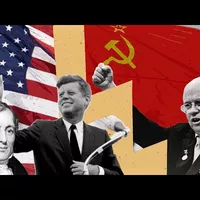Here Is How Rich Countries Got Rich
To an outsider this may sound strange, but the science of economics behaves like fashion.
It changes in cycles. As a man who has had to wear ties professionally, I observed that if I
stored my unfashionable ties long enough, they would sooner or later become fashionable again.
The main variable in men's tie fashion is the width of the tie. The main variable of economics
fashion is the level of abstraction at which the analysis is carried out.
With the Cold War, a very abstract version of neo-classical economics became fashionable again.
English economist David Ricardo, writing in 1817, established a theory of international trade that
was built on the barter (exchange) of labor hours. All labor hours in the world were assumed to be
completely identical. Armed with this theory, England could ‘prove' that it was in everyone's
interest that England, the first country to industrialize, should remain the only one.
England had a ‘comparative advantage' in industry, and the rest of the world
should deliver raw materials to England. However, during the 19th century, all countries
that became wealthy industrialized behind protective duties; against the recommendations
of David Ricardo. Only the colonies were left without industry. And thus, they stayed poor.
There are political motivations behind different types of economic theory. Ricardo's theories only
became popular again with the Cold War. When communism promised ‘from everyone according
to ability and to everyone according to need', capitalism, armed with Ricardo's trade theory,
could promise that the prices of labor would tend to become the same globally.
This very abstract theory – assuming that the ‘market' facing a 12-year-old shoe-shine boy was
the same as the ‘market' faced by Microsoft and Bill Gates – mathematically ‘proved' that if free
trade ran the world it would benefit everyone. However, the lack of any classification
system between economic activities had benefits for some and costs to others.
In sports, like wrestling and boxing, athletes compete in different weight categories.
If suddenly these sports would become like economics – with no categories – it is fairly
obvious that the heavyweight wrestlers and boxers would take most of the medals and the
athletes that weight less would be the losers. In economics the result was similar. It was
discovered in 1613 that by establishing just two categories of economic activities
one could explain the difference between rich and poor countries.
Category 1 was when one factor of production is determined by nature – in agriculture,
in mining or fisheries. Here, sooner or later, less fertile land and less rich mines
would have to be used, and productivity would fall. Category 2 was manufacturing industry,
where production could normally expand with significantly lowered costs.
In economics, the most technologically advanced countries would be in the position
of the heavyweight boxers or wrestlers. Since World War II that has been the United States,
and not surprisingly US economists have produced very sophisticated theories ‘proving'
David Ricardo's 1817 theory. They were the heavyweights. Now when China is
becoming the heavyweight, the United States elected someone who was against free trade:
Donald Trump. This is normal. The same thing happened when the previously most advanced
countries, first Holland, then England, lost out. They also became protectionist.
It is time for us to understand this mechanism and to
rediscover the less abstract versions of economic theory.
This is difficult, however, because in most universities the abstract versions dominate.

